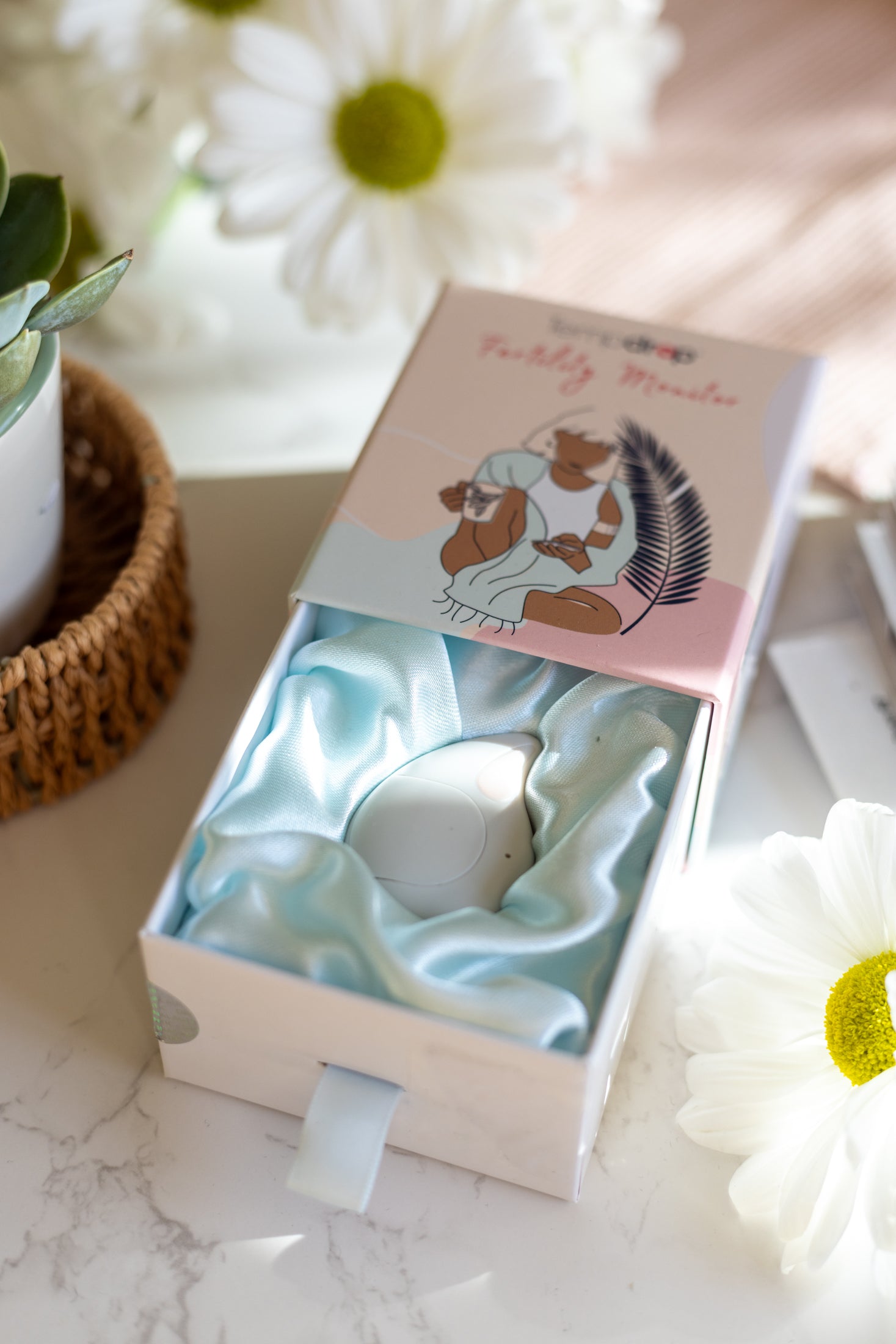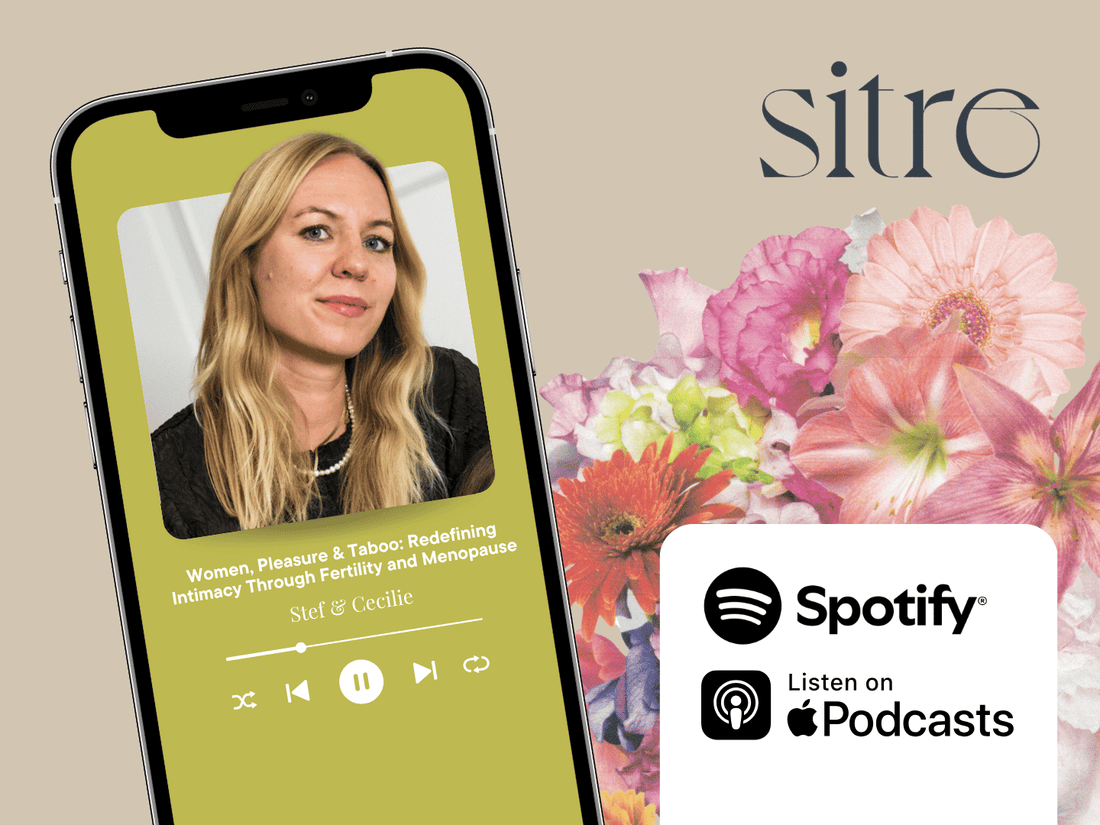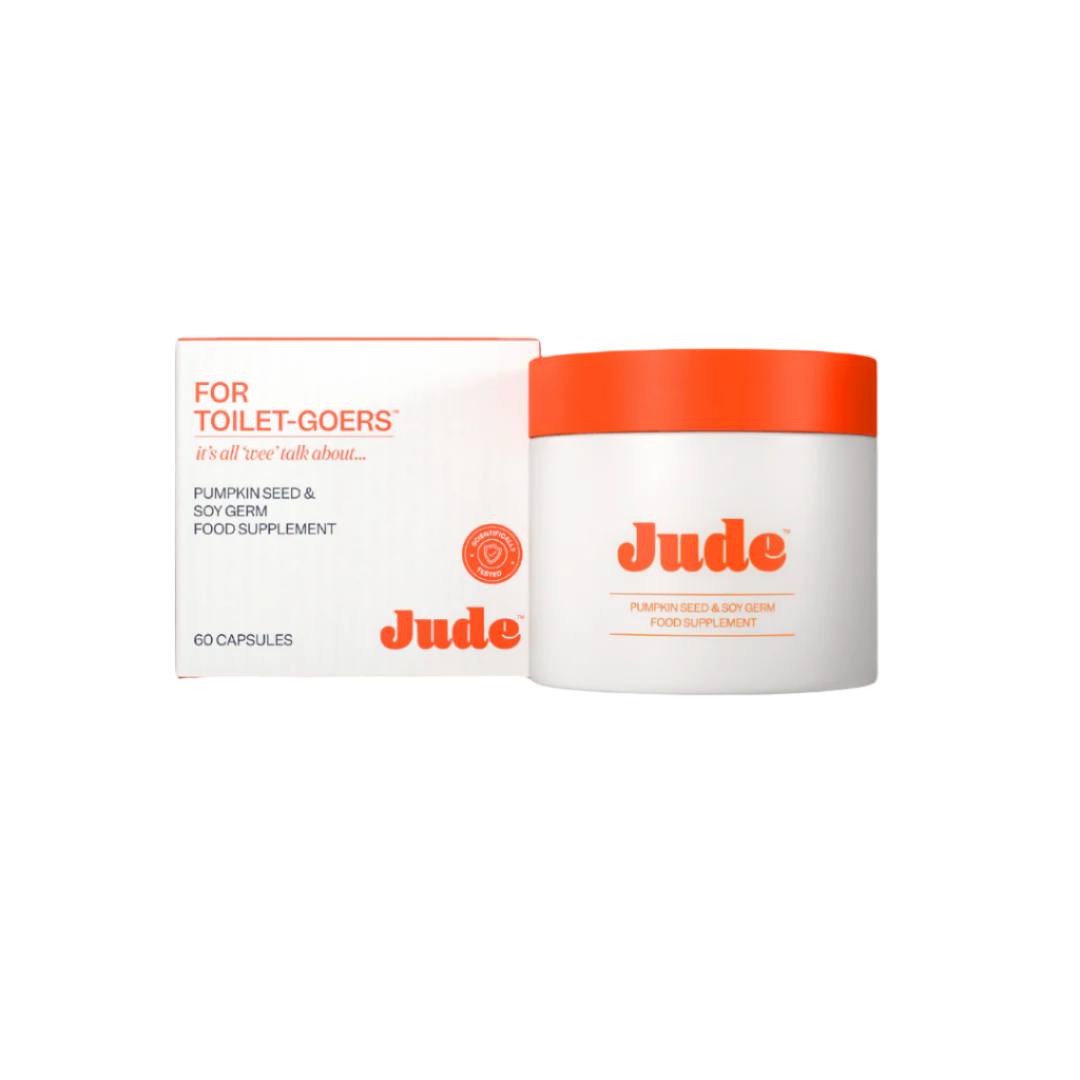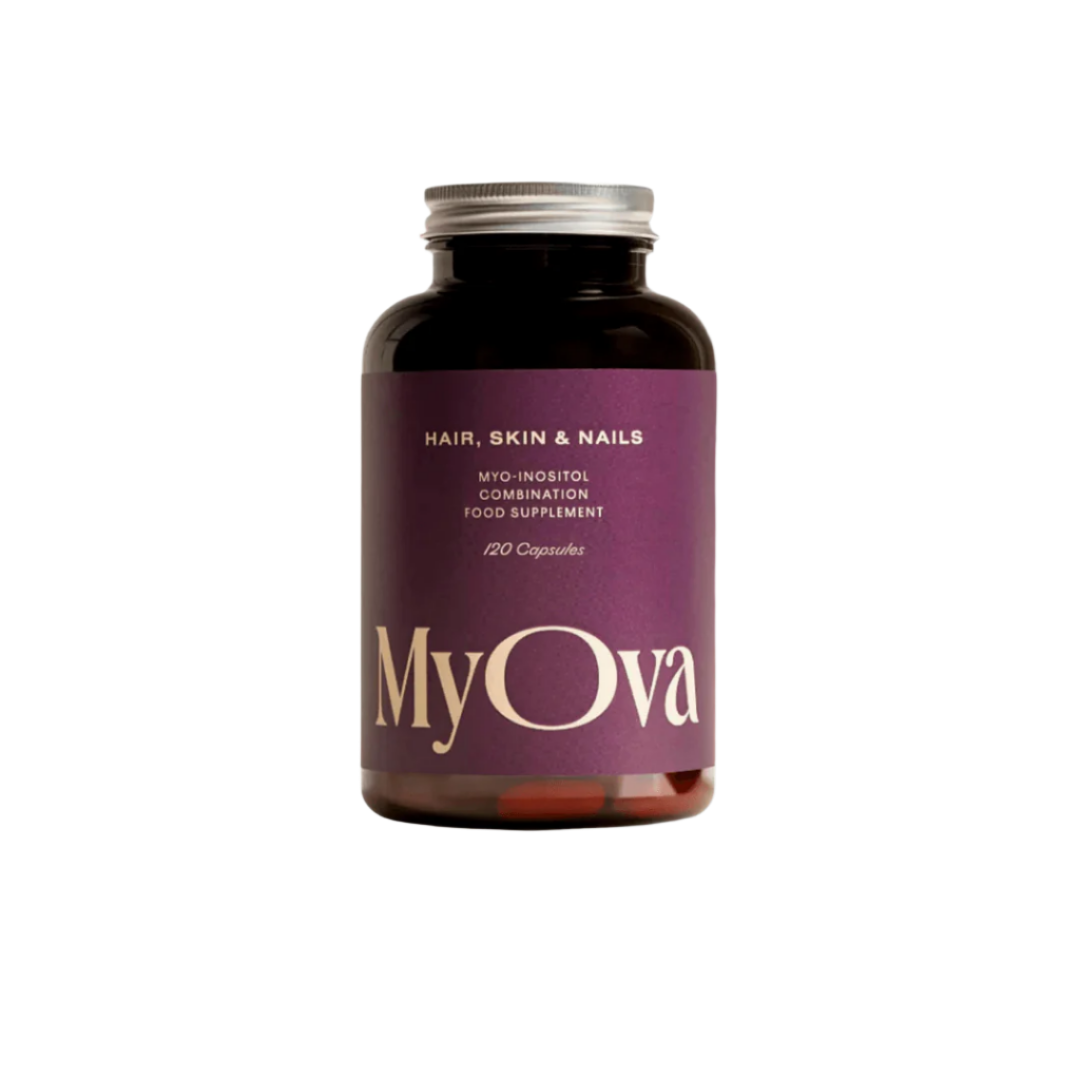The Journal
Learn Everything About BBT Basal Body Temperature Tracking
Learn how to track your basal body temperature (BBT) to understand ovulation, monitor fertility patterns, and gain insights into your menstrual cycle. This guide covers tools, charting tips, and how combining BBT with methods like the Symptothermal Method can improve accuracy and support reproductive health.
Learn more5 Tips for Coping with Infertility During the Holidays
Struggling with infertility? Discover 5 practical strategies to manage emotions, prioritise self-care, lean on support, and protect your wellbeing, helping you find peace and resilience during challenging times.
Learn moreEgg & Sperm Quality: The Hidden Key to Fertility Health
Fertility isn’t just about timing it’s about quality. During National Fertility Awareness Week, we’re shining a light on one of the most overlooked aspects of conception: egg and sperm health. Whether you’re actively trying to conceive or planning for the future, understanding how lifestyle, nutrition, and targeted supplementation affect reproductive cells can make a big difference. Why Egg Quality Matters A woman is born with all the eggs she will ever have around one to two million. Over time, that number and quality naturally decline. By the mid-30s, fewer eggs are released, and the likelihood of chromosomal abnormalities increases, which can affect conception and pregnancy outcomes. The good news? Egg quality can be supported with lifestyle changes and fertility-focused supplements. Tips to Support Egg Health Nourish your body: Antioxidants like vitamins C and E, selenium, and CoQ10 protect eggs from oxidative stress. Balance blood sugar: Whole foods, lean proteins, and healthy fats stabilise hormones and support ovulation. Reduce toxins: Limit alcohol, smoking, and environmental toxins like BPA. Prioritise rest & stress management: Chronic stress can impact ovulation and hormonal balance. Supplements like Ovum are designed to provide essential vitamins, minerals, and antioxidants to support egg quality and reproductive health. Femme Health Pre-Conception & Ovulation Support Supplement, formulated to nourish your body for conception. Sperm Health: More Than Just Count Sperm quality isn’t only about quantity it’s about motility (movement), morphology (shape), and DNA integrity. Research shows that sperm health can change within about three months, as that’s how long new sperm take to develop. Ways to Boost Sperm Quality Maintain a healthy weight: Excess body fat can affect testosterone and sperm production. Fuel up: Zinc, folate, vitamin D, and omega-3s support sperm quality. Stay cool: Avoid excessive heat from laptops or saunas on the lap area. Cut back on toxins: Smoking, heavy alcohol use, and recreational drugs can harm sperm DNA. The Power of Preconception Care Preconception health isn’t just for those ready to conceive today it’s a form of body literacy. Understanding your fertility empowers you to make informed choices about your health, family planning, and overall wellbeing. Consider fertility testing or consultations to learn more about: Ovarian reserve testing (AMH, FSH, AFC) Semen analysis Hormone balance panels Nutritional and lifestyle assessments Supplements like Ovum Femme Health Pre-Conception & Ovulation Support can complement these lifestyle and testing strategies, providing targeted nutrients to support both egg and sperm quality. Key Takeaway Both Egg & Sperm Quality are vital to conception, and both can be nourished through lifestyle, diet, and supplementation. Nutrition, stress management, and targeted vitamins play powerful roles in protecting reproductive health. This National Fertility Awareness Week, let’s normalise conversations around fertility because awareness is the first step to empowerment. Because fertility health is whole-body health.
Learn moreNavigating Intimacy During a Fertility Journey: Insights from the Know Your Flow Podcast with Andrea Balboni
1 in 6 face fertility challenges at work. Natalie Silverman shares IVF insights and practical guidance for managers to support employees with empathy.
Learn moreShow Notes: Supporting Fertility Journeys in the Workplace with Natalie Silverman
1 in 6 face fertility challenges at work. Natalie Silverman shares IVF insights and practical guidance for managers to support employees with empathy.
Learn moreShow Notes: The Thyroid–Cycle Connection: Missed Ovulation, Lost Periods, and Hashimoto’s Health
In this insightful 60-minute episode of Know Your Flow, host Stef Meachin speaks with Rocsi, Founder of Her Aligned Hub, about the crucial link between thyroid health and menstrual cycles. They dive into how thyroid dysfunction, including autoimmune conditions like Hashimoto’s, can cause missed ovulation, irregular or lost periods, and fertility challenges.
Learn moreShow Notes: Know Your Normal - Breaking the Silence on Women's Intimate Health
Know Your Normal - Breaking the Silence on Women's Intimate Health Title: Know Your Normal - Breaking the Silence on Women's Intimate Health Host: Stef Meachin Guest: Dr Shirin Lakhani, GP, cosmetic doctor & founder of Elite Aesthetics Length: ~24 minutes In this powerful and eye-opening episode of Know Your Flow, Stef Meachin sits down with Dr Shirin Lakhani to explore the stigma and silence surrounding women’s intimate health. Together, they unpack why so many women suffer quietly with issues like dryness, discomfort, and conditions such as Lichen Sclerosus - and how open, informed conversations can change everything. Dr Shirin shares her experience as both a GP and women’s health advocate, explaining how innovative treatments such as Morpheus8V and the O-Shot are transforming care and confidence. This honest conversation reminds us that empowerment comes from knowledge, community, and the courage to know your normal. “So many women think pain or dryness is something they just have to live with — but that’s not true, and it’s not normal.” Dr Shirin Lakhani In This Episode, We Discuss: 💬 Why intimate health is still surrounded by stigma — and how to start the conversation 🌸 Understanding “knowing your normal” and recognising when something isn’t right 🩺 How emerging treatments like Morpheus8V and the O-Shot are supporting women’s wellbeing 💪 The importance of self-advocacy and building confidence in your body ❤️🔥 How openness and science can replace silence and shame “When women start talking openly, it shifts the whole conversation from embarrassment to empowerment.” Stef Meachin Episode Takeaways Pain, dryness, or discomfort are common, but not normal and shouldn't be endured in silence. Awareness is a form of self-care and early intervention. Modern Treatments Are Transforming Women's Intimate Health. You are the authority on your own body - and your concerns deserve to be heard. Conversation is a catalyst for culture change. “Science and support should go hand in hand — because every woman deserves to feel comfortable and confident in her body.” Dr Shirin Lakhani Timestamps 00:00 – IntroductionStef introduces Dr Shirin Lakhani and opens the discussion on why intimate health still carries so much stigma. 04:15 – Why Women Suffer in SilenceDr Shirin shares the cultural and emotional reasons women often avoid seeking help for intimate concerns. 09:40 – Knowing Your NormalThe pair discuss what “knowing your normal” really means and why early awareness is key to long-term health. 14:30 – Innovative TreatmentsDr Shirin explains how technologies like Morpheus8V and the O-Shot are changing the landscape of women’s intimate care. 20:45 – Empowerment Through AwarenessA conversation on how education, openness, and empathy can transform women’s experiences and confidence. 26:00 – Final ThoughtsDr Shirin encourages women to speak up, seek help, and take ownership of their wellbeing. Listen & Subscribe Listen to Know Your Flow by femme on Spotify, Apple Podcasts, or wherever you get your podcasts — and don’t forget to subscribe to catch the next episode in Season 3.
Learn moreShow Notes: Women, Pleasure & Taboo: Redefining Intimacy Through Fertility and Menopause
Women, Pleasure & Taboo: Redefining Intimacy Through Fertility and Menopause Title: Women, Pleasure & Taboo: Redefining Intimacy Through Fertility and Menopause Host: Stef Meachin Guest: Cecilie Hjelmager, Co-Founder of Sitre Length: ~30 minutes In the first episode of Season 3, Know Your Flow returns with a bold and important conversation about intimacy, female pleasure, and wellness. Host Stef Meachin, co-founder of femme, is joined by Cecilie Hjelmager, co-founder of the Danish intimacy brand Sitre, to explore why intimacy and pleasure are still treated as taboo topics - even among women - and how this conversation is finally beginning to change. Cecilie shares how her own experiences, alongside her co-founder Julie’s, inspired the creation of Sitre - a brand redefining intimacy with products designed to support fertility, postpartum, perimenopause, and menopause, all while promoting inclusivity and education. Together, Stef and Cecilie discuss how communication, emotional connection, and self-awareness can transform how we think about sex and intimacy at every life stage. “We wouldn’t even be on this planet without intimacy, so why is it still so taboo?” Stef Meachin In This Episode, We Discuss: The story behind Sitre and its mission to make intimacy part of overall wellness Why conversations about female pleasure are still surrounded by stigma The impact of fertility journeys, hormonal changes, and menopause on intimacy How small acts of connection — from touch to setting a mood — can nurture relationships The importance of fertility-safe and body-friendly products for women’s health How Sitre is building an inclusive storytelling platform to educate and empower Why teaching intimacy as part of wellbeing (not just sex education) should start earlier Listen here “Intimacy isn’t a luxury - it’s a key part of our wellbeing.” Cecilie Hjelmager Episode Takeaways Intimacy should be seen as wellness, not shame. Open communication between partners is vital through life’s changes. Pleasure and emotional connection support mental and physical health. Safe, inclusive products can empower women through every stage of life. Sitre products containing CBD and Vitamin E, could really help those with endometriosis and adenomyosis with intimacy as it often causes muscle spasms and tension “A good orgasm can be one of the best stress relievers - yet no one teaches that.” Cecilie Hjelmager Timestamps 00:00 – Welcome to Season 3 of Know Your Flow Stef opens the new season with excitement and introduces today’s theme: intimacy — a subject many women still find difficult to talk about. 01:00 – Introducing Cecilie and Sitre Meet Cecilie Hjelmager, co-founder of the Copenhagen-based intimacy brand Sitre, redefining how we think about pleasure, wellness, and women’s health. 02:00 – The Story Behind Sitre Cecilie shares how her and her co-founder Julie’s personal experiences led to creating Sitre — a brand inspired by the need for safe, empowering products that treat intimacy as part of overall wellbeing. 04:20 – Why Is Female Pleasure Still Taboo? A powerful discussion on why women’s pleasure has been ignored for centuries, the influence of media and male-centric narratives, and why open conversations are the key to change. 07:00 – The Importance of Representation and Storytelling Cecilie explains how sharing real stories from women helps break shame and normalise female desire, pleasure, and connection. 08:50 – Intimacy During Fertility and Menopause Stef and Cecilie explore how intimacy often suffers during fertility struggles and menopause, and how communication can strengthen relationships during these vulnerable stages. 10:45 – Redefining Intimacy Beyond Sex Cecilie shares how intimacy isn’t just about penetration — it’s about connection, touch, and acts of care like massages or lighting a candle to build closeness without pressure. 13:30 – The Pressure of Performance and Communication in Relationships Stef reflects on her own experience attending an intimacy masterclass, highlighting the importance of communication, honesty, and learning to adapt with your partner. 14:30 – Fertility-Safe Lubricants & Product Safety Cecilie explains why not all lubricants are fertility-safe and how Sitre prioritises natural ingredients, pH balance, and skin health to ensure safety during fertility treatment and menopause. 17:30 – Ingredients That Support Women’s Wellness Discover how Sitre uses Vitamin E for healing and CBD for relaxation and anti-inflammatory benefits — designed to nurture the body and reduce tension. 19:20 – Education, Inclusivity & Changing the Conversation Cecilie discusses why Sitre built a storytelling platform (feelSitre.com) to share honest, diverse experiences from women of all ages and backgrounds. 22:30 – Intimacy Education and Schools Stef and Cecilie reflect on how sex education in schools focuses on biology and contraception, not pleasure or wellbeing — and why this needs to change. 24:00 – Intimacy as Wellness and Stress Relief They discuss the mental and physical benefits of pleasure — from stress relief and better sleep to improved self-connection. 25:00 – Redefining the Language of Intimacy Cecilie talks about moving away from “kinky” or “dirty” language to embrace intimacy as something mindful, soft, and emotional — not performative. 27:00 – What’s Next for Sitre Cecilie reveals what’s coming next for the brand — from new products inspired by daily wellness rituals to expanding Sitre’s storytelling and educational platform. 29:00 – Where to Find Sitre Cecilie invites listeners to connect on Instagram @feelSitre Sitre products are also available here. 30:00 – Closing Thoughts Stef wraps up with a heartfelt thank you, reflecting on the importance of open conversations about intimacy, connection, and women’s wellbeing. “It’s about redefining intimacy as connection, not performance.” Cecilie Hjelmager Episode Summary In this episode, Stef and Cecilie challenge the taboos around female pleasure and redefine intimacy as a vital part of wellness. They discuss fertility, menopause, communication in relationships, and the power of safe, inclusive products and education. It’s an honest, empowering conversation for every woman learning to connect with her body, her partner, and herself. Listen & Subscribe Listen to Know Your Flow by femme on Spotify, Apple Podcasts, or wherever you get your podcasts — and don’t forget to subscribe to catch the next episode in Season 3.
Learn moreBaby Loss: Emotional Challenges, Grief, and Support After Miscarriage
“Grieving after baby loss or miscarriage is deeply challenging. Learn expert insights on coping with grief, supporting parents, and navigating the emotions of trying to conceive again.”
Learn more
In The Press

Simplify Your Fertility Tracking with Tempdrop
Take the guesswork out of cycle tracking with Tempdrop, the smart wearable thermometer that fits seamlessly into your routine. Designed to learn your unique patterns, it provides accurate, reliable insights without the hassle of early wake-ups or daily charts.
















